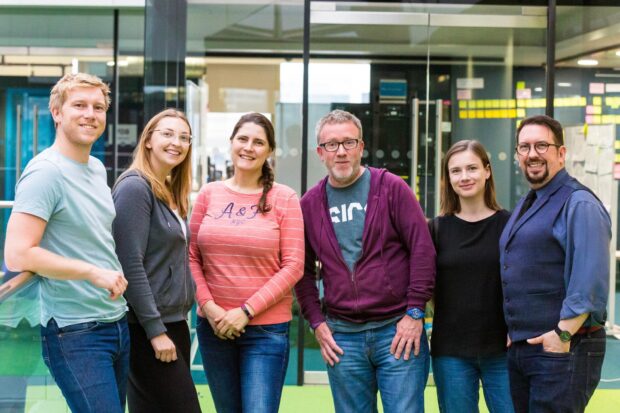
The GovTech Catalyst is a £20 million programme that connects private sector innovators with public sector organisations to solve some of the government's hardest problems. Challenges are chosen by a cross-government board, and then they are turned into competitions, which suppliers bid to solve.
One year ago the first GovTech Catalyst competition was launched.
Since then, it’s been a busy year for the team. We’ve chosen 15 different challenges and awarded £2.75 million of funding to 55 suppliers to work on innovative solutions to the chosen problems.
The challenges are incredibly diverse; they include finding technological solutions to keep firefighters safe inside buildings, tracking waste across the UK, and reducing loneliness and rural isolation.
We’re proud that we’ve awarded more than 90% of our funding to small and medium-sized enterprises (SMEs), helping us achieve our goal of growing the UK GovTech sector.
While the fund is a cross-government initiative, it is run by a multidisciplinary team of 7 people at the Government Digital Service (GDS). Alongside my role, there are 2 engagement leads, a content designer, a service designer, a technical architect and an operations manager.
Over this past year, as the GovTech Catalyst has moved firmly into its delivery stage, the whole team has learned a vast amount from working with a diverse set of suppliers and public sector organisations.
Scaling up innovative technology solutions
We’ve grappled with the hard work to scale up the suppliers’ new technology, integrate it with legacy systems, govern the safe transfer of data and limit the scope of each new intervention.
To solve these issues, we worked with each challenge owner to find the right digital, data and technology standards for their individual problems. This ensures each new technology component is compatible with the organisation’s existing infrastructure.
Diverse organisations require tailored engagement
The 93 submitted problems came from across the UK, with the majority from local government, devolved administrations and arm’s length bodies. We provided detailed feedback to each organisation that applied, as we chose the final 15 applications to become competitions.
Once these had been selected, we quickly realised there was varied digital capability in the organisations chosen and each one needed individually tailored engagement. We’ve varied the time that different members of the team work with challenge owners, depending on the extra help they need to define and launch their competitions. We also travel a lot to offer guidance in person to both challenge owners and suppliers through show and tells, workshops and presentations.
Suppliers need support to work with government
Suppliers are extremely keen to work with government with an average of 40 suppliers bidding per competition. However, some needed help to understand how best to work with the public sector. We realised that many did not know about the Service Standard and the Technology Code of Practice, which are critical to building and buying technology and digital services in government.
So, we highlighted these standards in pre-launch and midpoint sessions with suppliers and worked with them to help them understand how to apply the standards to their solutions. Now more suppliers are engaging with the standards proactively from the beginning of each project.
Service teams need support too
Since launching, it became clear that some competition owners needed help defining the scope of the issue they were facing. It was not enough to fund private sector companies to work on the problem, we also needed to support service teams in articulating what needed to be solved in the early stages.
We did this through providing service design support. We ran user journey mapping workshops with everyone involved in providing the service, from front-line support workers to back-end technologists. We used these sessions to define user groups and explain how to identify research questions – all tools that these organisations can use on other projects. It also has the additional benefit of getting entire delivery teams to buy into the work that is being done to solve the issue.
Iterate, iterate, iterate
We are learning by doing and constantly improving all aspects of the GovTech Catalyst as we go. For example, we regularly iterate a process map that we give to competition owners to guide them through the process in response to feedback.
By working across the UK with a wide range of suppliers and public sector organisations, we learn how all these different teams can be supported in unique ways.
As the final competitions are opened, we will continue to work in the open, share our knowledge and remain flexible as different challenges and opportunities arise.

